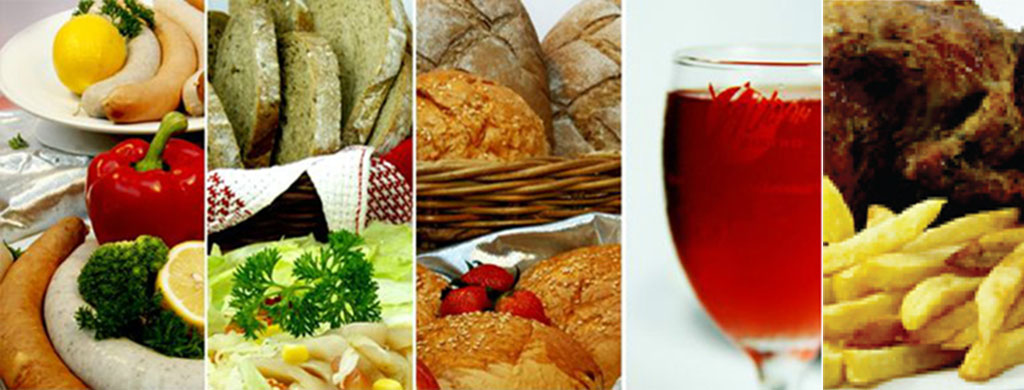So How Accurate are Stereotypes, Anyway?
Everybody in the world has come close together… and not just because of the surge in population to nearly 8 billion, either. Cheap jet travel means you can bop around the planet the way you used to travel from one small town to a neighboring village. You can be anywhere in a day or so.
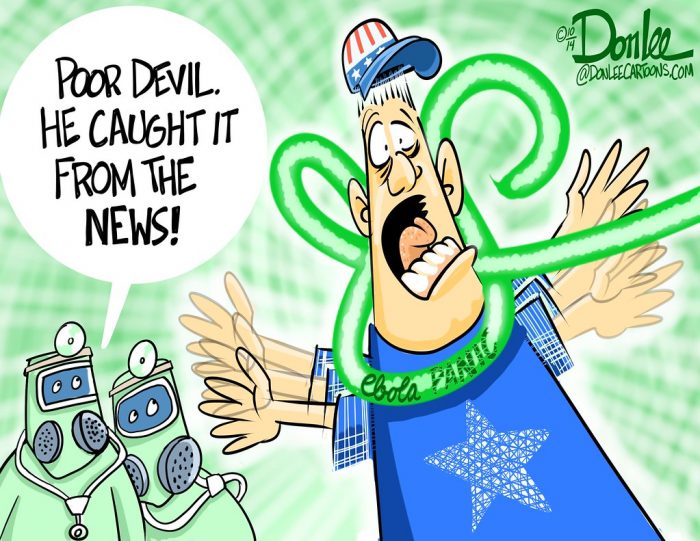
A barrage of media works to tie tight every country together, and broadcasting keeps jabbing relentlessly at everyone’s attitudes. Remember the AIDS panic? No? Long time ago. Remember the Ebola scare? All finished.

So don’t fall for the Corona virus alarm just yet. That’s not what’s likely to kill you, Uncle Sam:

The internet has exacerbated the intensity of one-on-one communication, for better or for worse.

Since the internet offers immediate “bite-sized” chunks of information, and by its very nature tends to reinforce what you already believe, it becomes a supercharger of prejudice.
The easiest way to understand this is to look at stereotypes.
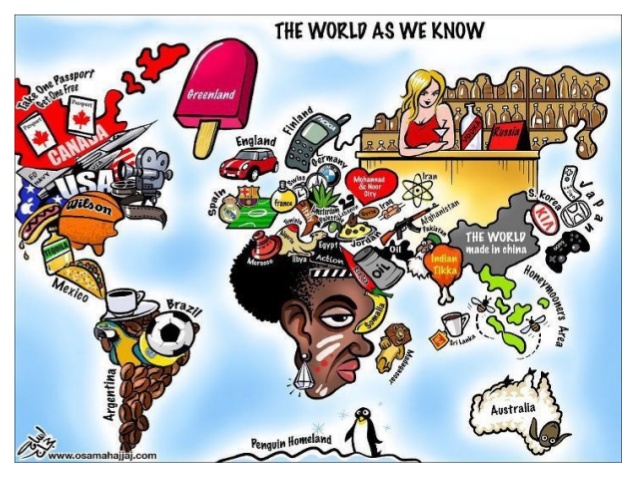
“STEREOTYPE: a widely held but fixed and oversimplified image or idea of a particular type of person or thing.”
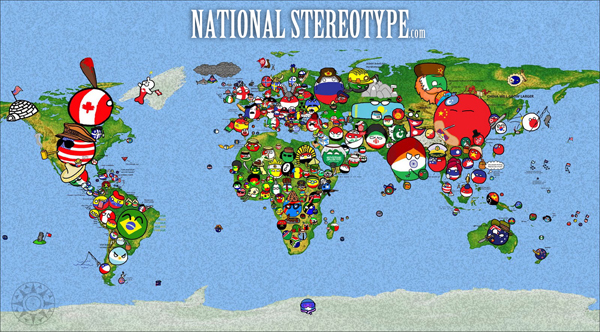
Are national, racial, sexual or religious stereotypes accurate? Are they useful? Let’s consider a more detailed daffy-nition:
“In social psychology, a stereotype is an over-generalized belief about a particular category of people. It is an expectation that people might have about every person of a particular group. The type of expectation can vary; it can be, for example, an expectation about the group’s personality, preferences, or ability.”
Naw, that’s no help. How do you define “over-generalized” anyway? Well the devil is, as they say, in the details.
Consider poor underpopulated, sunbaked Australia. Naw, it’s God’s Paradise, say the Aussies. Leave us alone. But they are certainly the target of stereotypes, wherever you look:
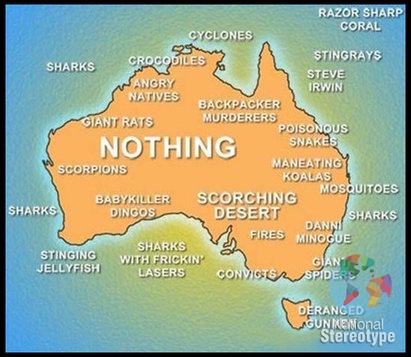
Is this an exaggeration? “Yes of course” you will agree. Is it inaccurate? Ah, that’s a more delicate matter. Consider a thoughtful “national cultural profile” – quite possibly useful for one traveling to Australia for the first time:
National Cultural Profiles – Australia
National Cultural Profiles are your guide to the thinking patterns of all the world’s major cultures. Below is an extract from the Australia profile
Introduction: Australia is the largest island in the world and the sixth biggest country in the world, yet it is one of the most sparsely populated places on earth. Geographical location and climatic conditions play a large part in shaping national character.
Self-image: The Australian self image is one of a “battler” – a person who had humble beginnings, but by sheer hard work, courage and a spirit of adventure conquered a huge, wild land and created a decent and prosperous society for self and family.
Concept of status: Australians are among the most democratic people in the world and any display of status symbols is risky. They love to cut people down in size.
Communication: Australia is the largest English speaking country in the southern hemisphere. Australian – the sixth largest variety of English (after American, British, Filipino, Indian and Canadian) – is a fascinating, young, vibrant, irreverent, humorous, inventive language. There are hardly any regional variations, no class pressures on one’s way of speaking, and people switch from broad to cultivated Australian at will.
Listening habits: It is inadvisable to be too serious or complicated. Australians are fond of jokes and anecdotes, preferably delivered in broad speech. A friendly and lively audience once they have decided to like you.
Leadership style: Australian managers must sit in the ring with the “mates”. From this position, once it is accepted that they will not pull rank, they exert more influence, as the semi-Americanised nature of Australian business requires quick thinking and rapid decision-making.
Cultural black hole: The Australian Cultural Black Hole is the Tall Poppy Syndrome. One version of this is: any Australian who achieves success will be brought down to size through a variety of abusive techniques. This leaves them either totally humiliated and regretting their achievements, or packing their bags and heading for those parts of the world where success is allowed to be overtly enjoyed.
How to empathise with them: Australians are totally cynical of people in power or with too much wealth, respecting the little person, “the battler”, rather than the winner. If you keep this in mind and don’t oversell yourself or undersell your Australian hosts, success, friendship and good times will be yours down under.
http://www.telegraph.co.uk/news/uknews/4205549/National-Cultural-Profiles—Australia.html
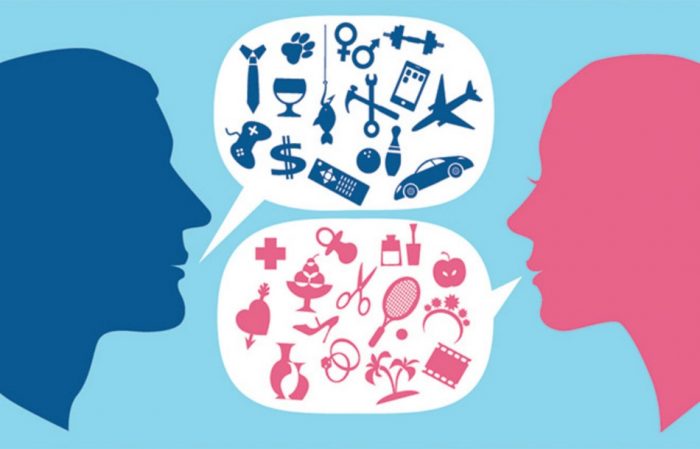
Why then are we wary of stereotypes? How can they stir up trouble? It is common to point the finger at the headlines or news flash on the telly: we lay the blame at the feet of print & electronic media, and the image they blast out to the rest of the world. Remember, dear YaUdah Bistro readers: for those selling ads and attracting an audience, GOOD NEWS IS NOT NEWS.
Panic sells papers (or draws eyeballs to TV or computer screens). Fear is a great salesman.
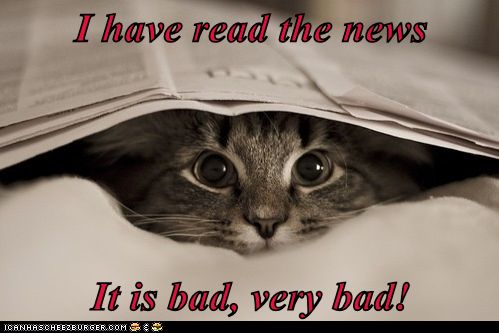
Many people have simply decided to turn off the TV, maybe even abandon the internet, to avoid the poison.

On the other hand, we still have to deal with each other. What can we believe about “the other”? Consider stereotypes in wealthy, sophisticated Europe, preconceptions common even among educated Europeans:


(JOKE BREAK – REINFORCING EURO-STEREOTYPES):
A famous Dutch theologian was so obsessed with his philosophical study of “Heaven” and “Hell” that it was driving him out of his mind. He could not eat; he could not sleep.
One tortuous night, when he was sweating in his bed, tossing and turning, a great angel appeared above him, come to comfort him.
“Oh my child… why are you so distraught? Why can you not find peace?”
He saw in the angel the answer to his conundrum.
“It is my study. I have been so obsessed with the nature of Paradise – Heaven – and its polar opposite, the Inferno…”
The wings of the angel quivered sadly. “Yes, Hell…”
“O great being” the scholar implored, “Can you enlighten me? Can you illuminate this matter of ‘heaven’ and ‘hell’?”
The angel smiled, compassionately.
“I shall explain it in a way that you will find pure understanding. You are a child of Europe.”
“Yes.”
“Let us compare Europe to… Heaven…”
The old man’s eyes glistened.
“In Heaven… The chefs are French … The police are English … The mechanics are German … The bankers are Swiss … …and the lovers are Italian.
Suddenly a flash of clarity appeared to the brilliant man.
He understood perfectly. “And Hell?”
The angel looked so very sad. It shook its radiant curls, and sighed… In Hell, the chefs are English … (groan…) The mechanics are French… The police are German … The bankers are Italian… …and the lovers are Swiss.

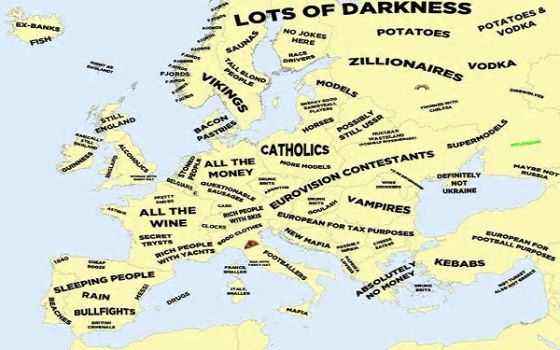
Is this fair? Of course not. Is it accurate? Well, a little. Useful? Could be. Fun? Oh sure.
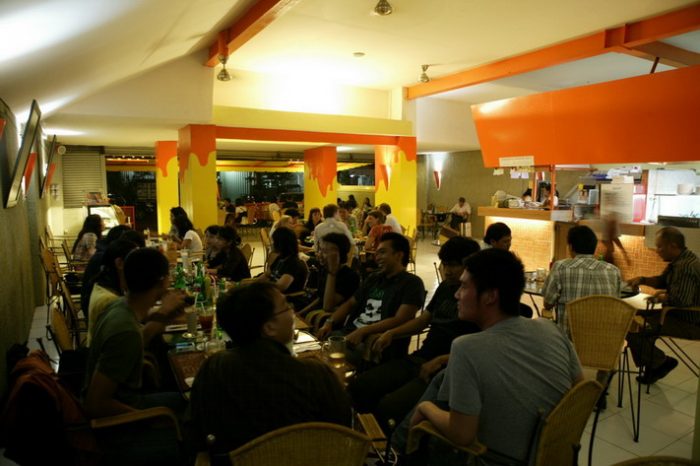
Speaking of fun, you can forget all about stereotypes when you come to YaUdah Bistro for an honest meal. Meet the finest grub and grog of its type: European / Asian fresh, hygienic, well-priced cuisine, prepared before your hungry eyes. Authentic slow food, freshly prepared from fresh ingredients. And that’s no stereotype.
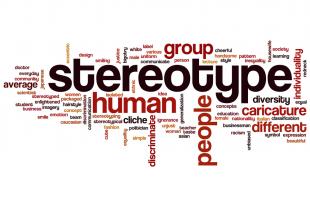
In fact we offer a range of choice delicacies to accompany your fine meal of steak, fish, sausage and salad.
- Very very healthy home-made multigrain seed bread, heavy and healthy
- Home-made apple pie, just like Mama never got around to making, because she was passed out drunk in front of the TV, a cigarette smoldering dangerously in her hand.
- Apple pie with or without ice cream, please.
- French baguettes – Sacrebleu!
- Italian Grissini – salted bread sticks with Parmesan cheese. Great accompaniment to a nice cold beer or hot meal.
Thanks for reading our blog! Look up some of the oldy-moldy ones on the website – they’re fun as well. Any comments you have about the subject, or the writing, or the food & drink – please share them with us below. We love to hear from readers (just to show that somebody is actually clickety-clockety on our website).


